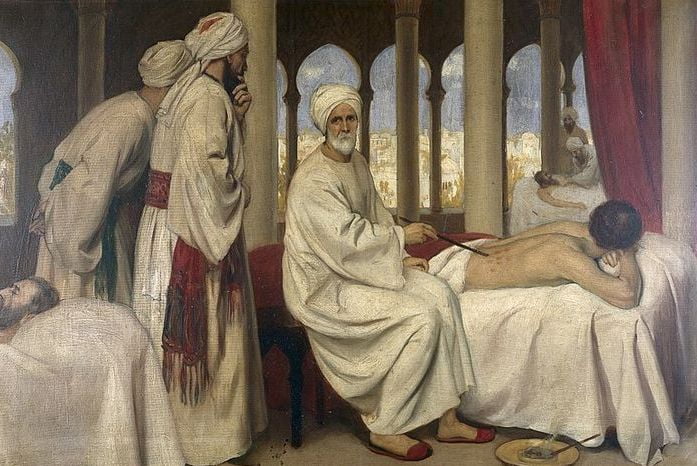The old model was fading. In the later empire, more and more of the euergetism (one might render that Greek word as do-goodism) came from on high, from the emperor himself, with money that had flowed up to the throne coming back down to cities and local communities. The individual community had less ability to control, manage, and protect itself, and so this imperially appointed commissioner, the defensor, emerged as the de facto leader of the local society and a point of connection to the imperial government and its taxing authority. Many would feel themselves better off and few would notice the loss of effective self-government.
Somewhere at the bottom of the hierarchical pyramid of government, we find one officer whose role may still inspire some skepticism: the “tri-bune of pleasures” (tribunus voluptatum). Let’s call him the minister of public entertainment. The office was perhaps less than a century old, created when local generosity did not suffice to keep up a suitable standard of public diversion. The shows and games of the ancient city had once been outsourced to the private sector, that is, to those wealthy and ambitious families who rivaled each other in ostentation; but now, in the late empire, these diversions were treated as a more routine kind of imperial business. Since baptized Christians were not allowed to perform onstage, the tribune himself walked a delicate line, supervising the impure while remaining uncorrupted. With grave and reverent caution, Theoderic’s words catch the ambiguity—“be sure you love chastity, sir, you to whom the prostitutes are subject.” We see this officer at Rome under Theoderic, but also at Milan, where a senator of advancing years was granted the title for life birdwatching bulgaria.
Theoderic’s Italy
One rank and title in Theoderic’s Italy is new: saio, a kind of man- of-all-work for the ruler. The older empire had “case agents” (agentes in rebus), combining the roles of spies, the secret police, and inspector gen-erals. The name saio is exceptional for its Gothic sound, but the role is the same. We see such agents only through the eyes of the ruler’s public relations apparatus, and there must have been times, places, and people who did not welcome their arrival—but that, in the end, is as it should be. On one occasion the saiones were checked in a letter from Theoderic for excessive and presumptuous use of the public post-horse system, which supplied relays of horses at regular intervals along the great Roman high¬ways for officials of a certain rank. Theoderic ordered one saio, Gudisal, to ensure that the service was reserved for appropriate representatives of the praetorian prefect and the master of offices, and that other saiones be allowed to use the service strictly on business assignments.
How might imperial attention have seemed excessive? Let’s take a case of high visibility and sensitivity—the magician magnates of Rome.
Sometime during the years 507 to 511, dark suspicions about high- ranking men began to be heard—from their highborn rivals? from envi-ous servants or tradesmen? We don’t know. Basilius and Praetextatus were from the very best families of sixth-century Rome. The charge against them was “magic arts,” a phrase that covers a multitude of virtues. They were probably found performing secret acts connected to the old tradi¬tions of Roman religion, rituals for which some might claim the power to influence divine behavior and material reality. The usually moderate Theoderic was sufficiently pompous now: “It is not to be tolerated for people to go so far as to defile the heavenly majesty with their assaults and follow the cruel paths of error, forgetting true piety. . . . There shall be no dabbling in magic arts in Christian times.”12 Theoderic ordered the distinguished senator Argolicus, prefect of the city, to turn the case over to the indicium quinquevirale, the “court of five,” an ad hoc body, dating to the late fourth century, that reviewed capital charges against senators. The names of the men Theoderic appointed to this jury are no less distin¬guished than those of the accused: Symmachus, Decius, Volusianus, Cae- lianus, and Maximianus. Theoderic authorized his senior military officer Arigern, general of the garrison at Rome, to use force to bring the suspects to trial if need be Theoderic more enlightened.
Theoderic’s letters
If all we had were Theoderic’s letters about this case, we would be left thinking only that he had made a grand show of forwarding the accusaions and appointing the judges. As it happens, a page of the Dialogues of Pope Gregory I, written in the 590s, lets us follow more of the story. Basilius, he tells us, was caught in the act of supposed magic. He disguised himself as a Christian monk and fled to the hills east of Rome. Coming to Amiternum in the Abruzzi, he asked the bishop to help him take refuge in a neighboring monastery. Deceived, the bishop complied, but Equitius, the abbot of the monastery, immediately recognized Basilius as a devil in the guise of a monk. The still credulous bishop prevailed on the abbot to accept him. Then an attractive member of a religious house of women nearby fell ill and cried out that unless the monk Basilius should come to her, she would die. Basilius’s own reluctant abbot was derisive and assured the messenger that the woman would recover immediately—and she did. Outraged by what they took to be the scheming of evil spirits, Equitius’s monks expelled Basilius from their number. Pope Gregory concludes, “When he had been sent away, he claimed that he had often caused the cell of abbot Equitius to levitate in the air by his magic arts, and said that no one could harm him. Not long after at Rome, thanks to the blazing zeal of the Christian people, he was put to death by fire.”








